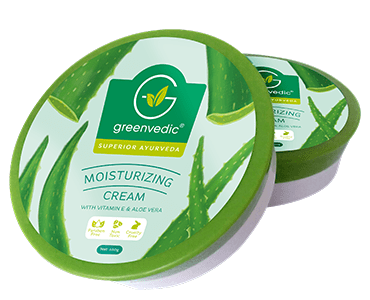Argan oil has a rich history dating back centuries. Originating from the kernels of the Argania spinosa tree in Morocco, it has been a staple in Berber cuisine and traditional medicine. Berber communities have used it for its nourishing and healing properties, benefiting skin and hair. In the late 20th century, the oil gained international popularity in cosmetics and skincare due to its high levels of antioxidants and fatty acids. Today, argan oil is a sought-after beauty product, celebrated for its natural, organic, and sustainable production methods, contributing to the economic empowerment of Moroccan communities and the preservation of argan forests.
it offers numerous benefits for skin, hair, and nails. Renowned for its moisturizing and anti-aging properties, argan oil nourishes and hydrates the skin, promoting a healthy complexion. It also helps improve hair texture, providing shine and managing frizz. With its natural healing properties, argan oil has become a popular ingredient in skincare and hair care products, offering a holistic solution for beauty and wellness.
Combat winter skin dryness with nourishing oils like argan, jojoba, and sweet almond oil. These oils provide intense hydration, replenishing moisture lost to harsh weather. Rich in essential fatty acids and antioxidants, they soothe and repair dry, flaky skin, leaving it soft and supple.
What Does Argan Oil Contain?
It is known for its various cosmetic, culinary, and medicinal applications. Argan oil is rich in several beneficial components, including:
1. Fatty Acids: Argan oil is composed of various fatty acids, including oleic acid (omega-9), linoleic acid (omega-6), and palmitic acid. These fatty acids are essential for maintaining healthy skin and hair.
2. Tocopherols (Vitamin E): Argan oil is particularly high in tocopherols, which are a group of antioxidants that include vitamin E. Vitamin E is known for its ability to help protect the skin from free radical damage and promote overall skin health.
3. Sterols: Sterols, such as schottenol and spina sterol, are present in argan oil and have anti-inflammatory properties. They contribute to the oil’s soothing effects on the skin.
4. Polyphenols: Argan oil contains polyphenolic compounds that have antioxidant properties. These compounds help combat oxidative stress and contribute to the oil’s anti-aging benefits.
5. Squalene: Squalene is a natural compound found in argan oil and is known for its moisturizing and skin-protective properties.
6. Carotenoids: These are pigments with antioxidant properties that contribute to the oil’s ability to neutralize free radicals.
7. Phytosterols: These plant-derived compounds have anti-inflammatory properties and can help soothe and repair the skin barrier.
8. Triglycerides: Argan oil contains triglycerides, which are a type of fat. These contribute to the oil’s emollient properties, making it effective for moisturizing the skin and hair.
The combination of these components makes argan oil a popular choice for skincare and haircare products, as it can provide hydration, nourishment, and protection. It’s important to note that the quality of argan oil can vary, so it’s advisable to choose a high-quality, cold-pressed, and 100% pure product for the best results.
Argan Oil Benefits
Here are several ways you can incorporate argan oil into your routine:
1. Skin Moisturizer:
• Apply a few drops of argan oil to your face and body as a natural moisturizer. It’s rich in vitamin E and fatty acids, which can help hydrate and nourish the skin.
2. Hair Conditioner:
• Use argan oil as a hair conditioner by applying a small amount to damp hair, focusing on the ends. This can help reduce frizz, add shine, and improve the overall health of your hair.
3. Leave-In Hair Treatment:
• Apply a few drops of argan oil to dry hair as a leave-in treatment. This can help with split ends and promote overall hair health.
4. Cuticle Oil:
• Massage a drop or two of argan oil into your cuticles to moisturize and promote healthy nail growth.
5. Facial Serum:
• Incorporate argan oil into your skincare routine by using it as a facial serum. It can help nourish and rejuvenate the skin, reducing the appearance of fine lines.
6. Lip Conditioner:
• Apply a small amount of argan oil to dry or chapped lips as a natural lip conditioner.
7. Makeup Remover:
• Use argan oil as a gentle makeup remover by applying a few drops to a cotton ball and wiping away makeup. It can effectively dissolve makeup while moisturizing the skin.
8. Body Scrub:
• Mix argan oil with brown sugar or sea salt to create a natural body scrub. This can help exfoliate the skin and leave it feeling soft and smooth.
9. Massage Oil:
• Use argan oil as a massage oil for a relaxing and moisturizing massage experience.
10. Stretch Mark Prevention:
• Pregnant women can use argan oil to help prevent and reduce the appearance of stretch marks by massaging it into the skin regularly.
11. Sunburn Relief:
• Apply argan oil to sunburned skin for its soothing and moisturizing properties.
12. Heel and Elbow Softener:
• Rub argan oil into rough areas like heels and elbows to soften and moisturize the skin.
13. Shaving Oil:
• Use argan oil as a natural shaving oil to help achieve a smooth shave and reduce irritation.
Risks and Side Effects of Argan Oil
Argan oil is a natural oil derived from the kernels of the argan tree (Argania spinosa), which is native to Morocco. It is often used for cosmetic and culinary purposes due to its purported health and beauty benefits. While argan oil is generally considered safe for most people when used topically or ingested in moderate amounts, there are potential risks and side effects to be aware of:
1. Allergic reactions: Some individuals may be allergic to argan oil. Allergic reactions can manifest as skin rashes, itching, redness, or swelling. If you experience any of these symptoms, discontinue use and consult a healthcare professional.
2. Skin irritation: Even for those who are not allergic, argan oil may cause skin irritation in some cases. It’s advisable to perform a patch test before using it extensively on your skin to ensure you don’t have a negative reaction.
3. Not suitable for all skin types: While argan oil is praised for its moisturizing properties, it may not be suitable for everyone. People with oily or acne-prone skin might find that argan oil exacerbates their condition. It’s essential to choose skincare products based on your skin type.
4. Photosensitivity: Some oils, including argan oil, can make your skin more sensitive to sunlight. If you use argan oil on your skin, be cautious about sun exposure, and consider using sunscreen to protect your skin.
Remember to use only a small amount of argan oil, as a little goes a long way. It’s a good idea to do a patch test before using it extensively, especially if you have sensitive skin, to ensure you don’t have any adverse reactions. Additionally, make sure to choose Expo Organics high-quality, pure argan oil for the best results.


